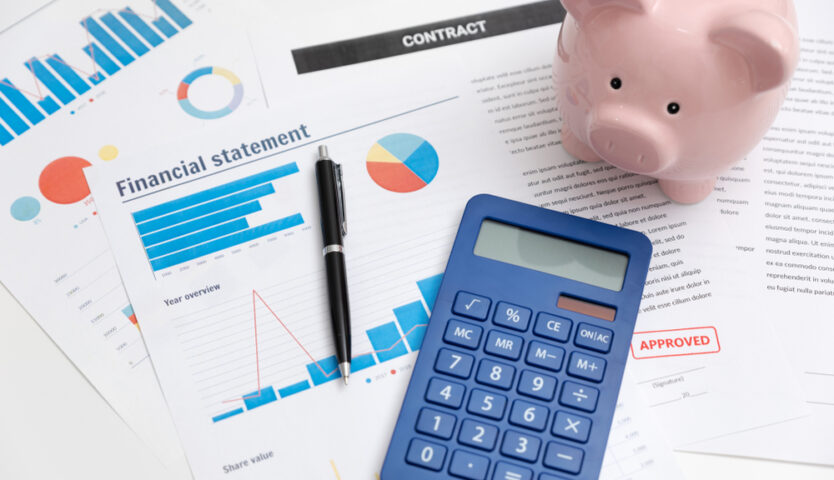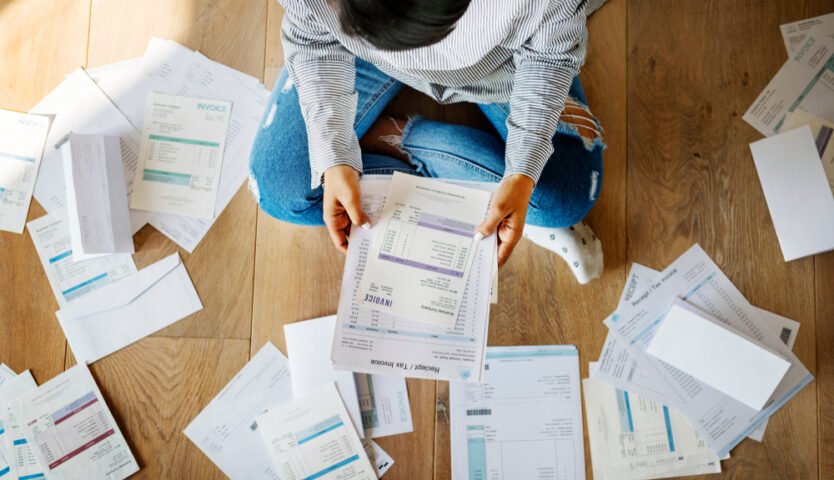In Canada, rental income is the income you earn from a rental property that you own and rent to someone else.
Typically, rental income comes from renting apartments, houses, and rooms but also includes office space and other commercial properties.
In this article, we are going to discuss everything you need to know about rental income in Alberta as an individual (not a business or trust).
While earning an income rental seems like a quick and easy way to make more money, there are many factors that you have to take into consideration, such as how to determine your rental rate and how to claim your rental income on your taxes.
We’ll also look at the benefits and risks of earning a rental income, as well as tips on how to save money on your rental income.
Determining Your Rental Rate
It can be difficult to determine what you should charge for rent. You want to ensure the cost is not too high so your rental property remains attractive.
However, you don’t want to price your rent too low and miss out on the additional income.
Check the Current Property Value
In order to calculate your rental rate, begin with the current property value (not the same price it was initially purchased at). This will give you an idea of how much the property is worth in comparison to other rental properties in the area.
Do Your Research
You should also look at comparable rentals in the area for similar properties by browsing rental listings that are the same size with the same number of bedrooms. You should also take the condition of the other properties into consideration.
Use This Formula
Now, take the current property value and multiply it by 1%.
For example, if the value of the property is $200,000, then 1% is $2000. This is a baseline rental rate you can then compare to the similar properties you researched.
Other Factors
There are other factors you should consider when determining your rental rate, such as:
- Maintenance costs
- The demand for rental property
- Demographics
- Price-to-rent ratio (affordability when it comes to renting versus buying in the area)
Taxes on Rental Income in Alberta
When you collect rental income in Alberta, you must report that income on your tax return. Rental income is taxed at a marginal rate similar to interest income and can range from 25% to 48%.
Keep in mind that only your net rental income is taxable. This does not include deductions made for expenses such as property taxes, insurance premiums, and utilities.
What Can I Deduct From My Taxes?
You can also claim capital cost allowance (CCA) against your rental property and other assets used for earning rental income, like tenant improvements and new appliances.
CCA claims are depreciable, meaning that you must deduct the cost of your capital investment over a number of years.
If your rental expenses exceed your rental income, this is considered a rental loss and is usually deductible against your other sources of income.
However, there are some limits on claiming a rental loss, and CCA deductions cannot be used to create or increase a rental loss.
Not all expenses are deductible when it comes to your rental income, even if they relate to your rental property. These are known as “capital expenses” and refer to expenses that have a lasting benefit to your property.
For example, you cannot claim the cost of replacing your roof or adding a deck to your rental building.
However, even though these improvements can be claimed as deductibles, they can be added to the tax cost of your property, which allows you to claim the expense as a CCA over the course of several years.
Expenses that are considered deductible are known as “current expenses” and include expenses used to maintain, repair, or otherwise restore your property.
For example, building a fence is considered a capital expense and cannot be claimed – but sanding and repainting an old fence is a current expense, and the cost can be claimed.
Current expenses should be claimed in the year they were incurred instead of spread over time.
How Do I Know If It’s a Current or Capital Expense?
Figuring out whether your expenses are current or capital can be confusing. Is it a maintenance job or long-lasting improvements? Is re-wiring a home a current or capital expenditure?
This is why it is recommended that you speak with a qualified tax advisor before you carry out repairs, maintenance, or renovations to ensure that you make the proper claims on your taxes.
How do I file my taxes when I claim rental income?
If you are claiming rental income as a sole proprietor and not a business or partnership, you can include this income in your personal taxes by filling out Form T776.
You can also claim expenses on this form as well.
Be sure to keep all receipts from rent and expenses when preparing your personal tax return.
Benefits of Gaining Rental Income
There are a number of advantages to buying a property and renting it to tenants. Here are some of the key benefits:
Fewer Taxes
As we discussed above, you can claim certain expenses from your rental income, thus reducing the taxes you owe.
You can claim expenses such as mortgage interest, property taxes, insurance, maintenance, upgrades, property management fees, and utilities (if they are included in the rent).
Passive Income
Owning a rental property pays out on a monthly basis. This recurring income requires relatively little effort to earn and is a great way to make money on the side or create additional financial security.
The rental income you collect will offset the mortgage cost of your building, putting more money in your pocket!
Of course, you do have to factor in cash flow and prepare for inevitabilities such as cleaning up when a tenant moves out and repairs.
Property Appreciation
In today’s housing market, it seems tempting to sell your house and cash in on the rocketing house prices. However, once you sell your home, you can no longer benefit from any future appreciation.
Instead, you could rent out your home to secure your property and wait for the right time to sell.
Plus, having tenants ensures that issues with your home are noticed immediately and can be fixed in a timely manner.
Risks of Gaining Rental Income
Of course, there are some disadvantages and risks to gaining rental income that needs to be taken into consideration:
Tenants
When you own rental property and rent to tenants, you become a landlord. Despite your due diligence when choosing renters, you could end up with a difficult tenant.
For example, you could end up with a tenant that pays their rent late, demands unnecessary repairs, leaves the water running, keeps the heat on while away, etc.
You could also end up with an unsavory tenant that destroys your property.
While the majority of tenants in Alberta are respectful, you could end up with one that costs you money and decreases the income you make from their rent.
Repairs and Maintenance
When you own a rental property, minor and major repairs will arise. You may be able to save money by doing the work yourself, but larger issues may require a professional contractor.
As a landlord, you should expect to face regular maintenance and repair issues. From broken toilets to rotting stairs, it is your responsibility to ensure that the property is safe and livable.
If the building you invested in requires a lot of work, you can expect to pocket less of the rental income.
Your Assets Become Concentrated
If you’re looking to purchase a rental property as an investment opportunity, it’s important to consider that doing so will concentrate your assets.
Rental properties are non-liquid and non-diversified assets and can be exposed to risks from significant declines in tenant demand and local property values.
Tips for Saving on Rental Income
When you own a rental property, you are running a business that can be affected by the rise and fall of revenue and expenses.
Here are some tips for saving rental income so you can put more money in your pocket while creating a safe and comfortable environment for your tenants.
Keep Up With Regular Maintenance
Regular maintenance is a preventative measure that will protect your investment and keep your tenants happy (happy tenants reduce tenant turnover and increased costs).
Plus, regular maintenance will help you avoid more costly issues in the future.
Reduce Tenant Turnover
Speaking of tenant turnover, having tenants continuously coming and going is going to cost you more out of pocket for cleaning and updating – and you may lose out on rent as you advertise and vet a new tenant.
The key to reducing tenant turnover is keeping your tenants happy. Create an open environment of communication so you can learn about issues and solve them in a timely manner.
Fixing issues is far cheaper than the cost of turnover.
Reduce Property Expenses
Even though rental income is considered a passive income, there are many property expenses that come with being a landlord.
From heating bills to electricity bills, snow removal, and garbage removal, there are many financial responsibilities. However, you can always find ways to reduce these expenses.
For instance, you can improve the energy efficiency of your property by using less expensive alternatives such as LED lights and modernizing the heating system.
Maximize Your Tax Deductions
Ensure that you are maximizing your tax deductions and offsetting your expenses against your tax bill!
This is perhaps the best way you can save on rental income – and all it takes is one call to a professional tax accountant.
Rental Income Frequently Asked Questions
Do you have more questions? We have more answers! Check out these frequently asked questions:
Do rental income tax laws vary from province to province?
As long as you are renting out your property as an individual (and not a trust or partnership), the tax rules apply across all provinces of Canada.
Can claiming rental income trigger an audit?
Typically, rental income is not a common audit trigger but constantly claiming losses from a rental property will catch the attention of the CRA.
If you find yourself facing recurring losses from your rental property, be sure to keep careful records to show the CRA that you are doing everything you can to turn a profit.
Do I have to claim rental income from family members?
Yes, if your family member is paying you rent, this income must be reported on your tax return.
However, if you rent property to a family member below fair market value, you may be able to claim an acceptable loss and avoid paying taxes on this income.
As a landlord, can I increase the rent at any time?
In Canada, you cannot increase the rent during any fixed-term rental agreement. If your tenant is not on a fixed-term agreement, you cannot raise the rent during their first year of tenancy.
Can I increase my rental income to any amount?
The ability to raise rent depends on the province you are in. In many provinces, the amount of the increase is controlled by the government.
However, in Alberta, there are currently no controls on rent increases, but it can only be increased if there has been no rent increase in the previous 12 months (or since the start of the tenancy).
Rental Income in Alberta – We Can Help!
Although this guide is a great introduction to rental income in Alberta, the only way to guarantee that you fully benefit from earning a rental income is to speak to a licensed tax professional.
Our team at Liu & Associates has the knowledge and expertise when it comes to Albertan and Canadian tax landscape.
We can help you sort out your rental income and expenses so you can maximize your tax return.








 Estate planning can be an intense process for some, for others it might seem like just another hassle. As the top earning generation ages into retirement, it’s becoming essential for people to know what goes into writing a will. If you, your spouse or a loved one needs help with creating a legal and fiscally sound plans– consult Liu & Associates’ guide below! The following five tips are the most common oversights made when planning an estate.
Estate planning can be an intense process for some, for others it might seem like just another hassle. As the top earning generation ages into retirement, it’s becoming essential for people to know what goes into writing a will. If you, your spouse or a loved one needs help with creating a legal and fiscally sound plans– consult Liu & Associates’ guide below! The following five tips are the most common oversights made when planning an estate.


